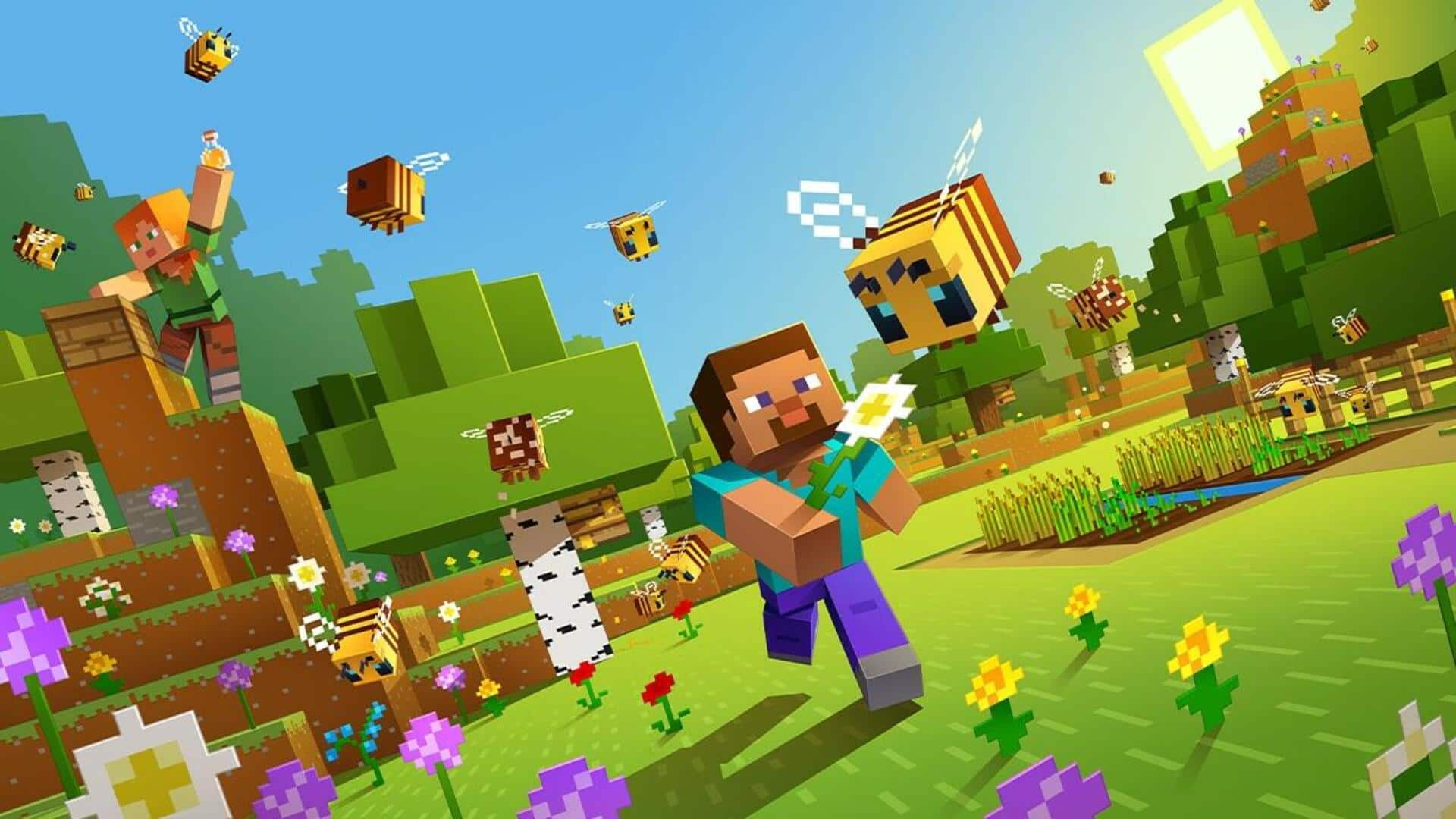
AI makes friends and creates jobs in groundbreaking Minecraft experiment
What's the story
In a groundbreaking experiment, AI start-up Altera made artificial intelligence (AI) characters behave eerily human-like in the popular game, Minecraft.
The study involved as many as 1,000 software agents working simultaneously with large language models (LLMs) to interact with each other.
With just a little text prompting from their creators, these AI characters developed a variety of personality traits and roles in the game.
Advanced interactions
Characters shared memes, voted on tax reforms
Notably, the AI characters not only survived but thrived in the Minecraft environment. They established in-game jobs, shared memes, voted on tax reforms, and even propagated a religion.
This experiment is part of Altera's broader vision to use simulated agents to predict how human groups might respond to new economic policies or other interventions.
AI future
Altera's founder envisions large-scale 'AI civilizations'
Altera's founder Robert Yang thinks this experiment is just the first step toward building large-scale "AI civilizations" capable of coexisting and working with us in digital spaces.
Yang said, "The true power of AI will be unlocked when we have actually truly autonomous agents that can collaborate at scale."
This vision was inspired by Stanford University researcher Joon Sung Park's 2023 findings on surprisingly human-like behaviors of a group of 25 autonomous AI agents interacting in a basic digital world.
Funding success
Over $11 million raised in funding for AI research
Altera has raised over $11 million in funding from investors like Andreessen Horowitz (A16Z) and former Google CEO Eric Schmidt's tech VC firm.
The start-up's latest experiment, Project Sid, employs simulated AI agents with "brains" made up of multiple modules.
Some of these modules are powered by LLMs and programmed to specialize in certain tasks like interacting with other agents, speaking or planning the agent's next move.
Behavioral patterns
Agents exhibited human-like behaviors in Minecraft
In the experiment, groups of around 50 agents were tested in Minecraft to see how they interacted.
Over 12 in-game days (four real-world hours), the agents started showing some interesting emergent behavior.
For instance, some became very sociable and made many connections with other characters, while others seemed more introverted.
The "likability" rating of each agent (measured by the agents themselves) changed over time as the interactions continued.
Role specialization
Specialized roles within the community
In a series of 30-agent simulations, despite all the agents having the same personality and overall goal—to create an efficient village and protect the community against attacks from other in-game creatures—they spontaneously developed specialized roles within the community, without any prompting.
They diversified into roles like builder, defender, trader, and explorer.
Once an agent had started to specialize, its in-game actions began to reflect its new role.
Rule adherence
Community-wide rules, voting on tax laws
Yang's team also tested if agents could follow community-wide rules.
They created a world with basic tax laws and let agents vote for changes to the in-game taxation system.
Agents prompted to be pro or anti-tax were able to influence the behavior of other agents around them, enough that they would then vote to reduce or raise tax depending on who they had interacted with.
Cultural transmission
Spreading cultural memes, propagating parody religion
In larger simulations with up to 1,000 agents, the team saw how the agents spontaneously created and then spread cultural memes among their fellow agents.
The team also seeded a small group of agents to try to spread the (parody) religion, Pastafarianism, around different towns and rural areas in the in-game world.
They watched as these Pastafarian priests converted many of the agents they interacted with.
More
Altera's vision for human-like agents
The agents' lifelike behavior stems from a blend of LLM-trained patterns derived from human-created data and Altera's system.
"The takeaway is that LLMs possess a nuanced understanding of human social dynamics, allowing them to mimic these behaviors," explains Altera co-founder Andrew Ahn.
Altera plans to expand into Roblox next, with aspirations to move beyond gaming entirely.
Yang's ultimate goal is a world where humans don't just play alongside AI characters but interact with them in everyday life.